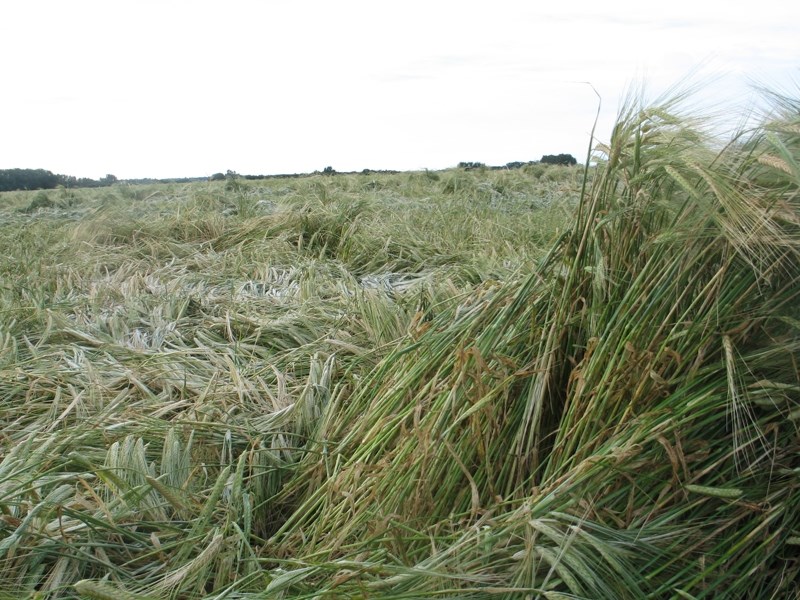Crop yields were dealt a major blow with the snowstorm that hit Central Alberta beginning on Sept. 8.
The overall picture of the crop won't be known until later this month after the temperature – which was expected to moderate late last week – goes up and farmers try to salvage what they can from what was a short 2014 growing season.
“It will be a very difficult harvest because you're going to have crop lying every which way. It's not like you get a strong wind that lays the crop down in one direction and you swath either at a perpendicular angle with the heads coming in first. You can't do that (with snow),” said Harry Brook, a crop specialist with Alberta Agriculture and Rural Development, adding that yield losses will be higher if farmers aren't able to pick the crop that has fallen in the field.
“It slows down harvest and makes it that much more difficult,” he said, adding that quality could also be affected if crops hadn't properly matured yet.
One of the other issues that farmers are caught with now, Brook said, is that because many farms are so large, it takes longer to harvest a crop. When adverse weather hits in the middle of harvest, it slows harvest down even more.
“It's always a rush to get the crop off before winter hits and now with lodging, it's going to slow things down, and people who have a lot of acres to harvest, it makes it that much more difficult to get them all done in time,” he said.
Brook said because canola is a fairly hardy plant, quality might not be harmed that much, but the same cannot be said for barley.
“You could go from a malt to a feed variety fairly quick. If you start getting weather on it, you get staining … and that downgrades it,” he said.
Hard Red Spring #1 wheat, with 13 per cent protein, had been fetching $5.73 per bushel as of Sept. 10, but could go down to as low as $5.13 per bushel. If the quality of Red Spring #1 is downgraded to feed grain, it could go as low as $3.83 per bushel.
Canola #1 was fetching $9 per bushel on Sept. 10, but if it comes in as worse quality, the price could drop to $7 per bushel.
Brook said snow this early isn't a recent phenomenon, noting that about 20 years ago a snowstorm hit in the third week of August, killing any chance farmers had for a good crop.
“Freezing temperatures, heavy snow, everything was lodged. It was a lot earlier than this one and it was devastating that year. There was an awful lot of canola that wasn't ripe and most of the cereals weren't ripe,” he said.
-with files from Doug Collie



